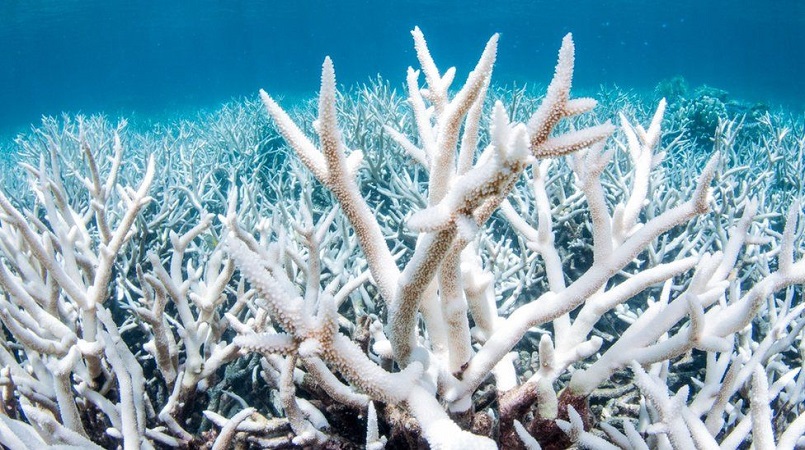
Australia's Great Barrier Reef is being devastated by another mass bleaching event, officials have confirmed.
It is the fourth time in six years that such severe and widespread damage - caused by warm sea temperatures - has been detected.
Only two mass bleaching events had ever been recorded until 2016.
Scientists say urgent action on climate change is needed if the world's largest reef system is to survive.
There are particular concerns that this bleaching event has occurred in the same year as a La Niña weather phenomenon. Typically in Australia, a La Niña brings cooler temperatures.
Scientists are now fearful of the damage that could be caused by the next El Niño.
The declaration was made by the Great Barrier Reef Marine Park Authority which has been conducting aerial surveys.
Recently it warned that water temperatures in parts of the reef had been up to 4C above the March average.
Stretching over 2,300km (1,400 miles) off Australia's north-east coast, the Great Barrier Reef is one of the most biodiverse ecosystems in the world.
Bleaching occurs when under-stress corals expel the algae living within them that gives them colour and life. They can recover but only if conditions allow it.
"Weather patterns over the next couple of weeks continue to remain critical in determining the overall extent and severity of coral bleaching across the marine park," the reef authority said.
Last year, Australia controversially lobbied to exclude the reef from a Unesco list of World Heritage Sites that are "in danger".
It has recently pledged money towards reef-protection measures, but critics said these did not address the dominant threat of climate change.
A climate laggard among rich nations, Australia is often criticised for its strong support of fossil fuel industries.
Earlier this week, UN Secretary-General Antonio Guterres singled out Australia as a global "holdout" on stronger efforts to cut emissions by 2030.
Two UN scientists are currently in Queensland on a reef-monitoring mission.
The Australian Conservation Foundation said it was "truly heart-breaking" to have another mass bleaching confirmed.
"These repeated bleaching events have hit the tourism industry hard and are a blow to everyone who loves this incredible natural wonder, which is home to a vast array of sea creatures," it said in a statement.
The first mass bleaching event was seen in 1998. It was again observed in 2002, 2016, 2017 and 2020.
